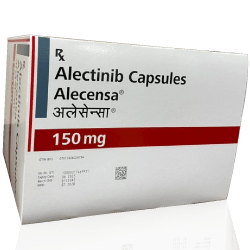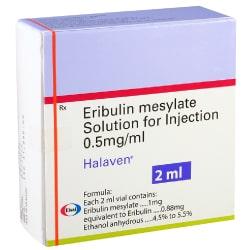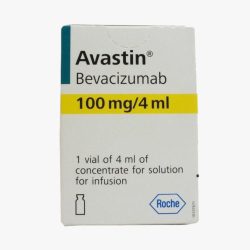Description
General Information: Alectinib is a kinase inhibitor used for the treatment of patients with non-small cell lung cancer that has progressed to other parts of the body (mNSCLC) and is caused by an abnormal anaplastic lymphoma kinase (ALK) gene. A healthcare provider (HCP) will perform a test to make sure that the medicine is right for you. It is not known if this therapeutic drug is safe and effective in children.
Dosage and Side Effects: The recommended dose of Alectinib is 600 mg orally twice daily until there is evidence of disease progression or unacceptable toxicity. The recommended dose of Alectinib in patients with severe hepatic impairment (Child-Pugh C) is 450 mg orally twice daily. Alectinib capsules should be taken with food. Avoid opening or dissolving the contents of the capsule. If a dose is missed or vomiting occurs after taking the medicine, take the very next dose at the scheduled time.
The most common side effects of Alectinib are fatigue, myalgia, constipation, edema, and anemia.
Warning and Precautions:
- Regularly monitor liver function tests, including ALT, AST, and total bilirubin, every two weeks for the initial three months of treatment. Afterward, conduct these tests once a month and as needed based on clinical indications. Increase the frequency of testing for patients showing elevations in transaminases and bilirubin levels.
- Alectinib treatment may lead to ILD/pneumonitis, a serious lung condition. If you experience worsening respiratory symptoms like difficulty breathing, cough, or fever, contact your healthcare provider right away. If diagnosed with ILD/pneumonitis, Alectinib treatment will be stopped immediately. If no other causes are found, Alectinib will be permanently discontinued. Early detection and prompt medical attention are crucial for managing this potential side effect.
- Alectinib treatment can lead to kidney problems in some patients. If a patient experiences severe renal toxicity (Grade 4), Alectinib should be stopped permanently. For moderate renal toxicity (Grade 3), treatment should be paused until the kidneys recover to a safer level, then resumed at a lower dose. It’s essential to monitor kidney function closely during Alectinib treatment and follow your healthcare provider’s instructions carefully.
- Alectinib may cause slow heart rate (bradycardia), which can lead to symptoms. Monitor heart rate and blood pressure regularly while taking Alectinib. If bradycardia occurs without symptoms, no dose adjustment is needed. For symptomatic bradycardia not life-threatening, temporarily stop Alectinib until heart rate improves or reaches 60 bpm. Evaluate medications that might contribute to bradycardia and consider adjusting anti-hypertensive drugs. Always consult your healthcare provider for guidance on managing bradycardia while on Alectinib.
- Alectinib may harm unborn babies based on studies in animals and how it works in the body. Women who could become pregnant should use reliable birth control while taking Alectinib and for one week after the last dose. This is crucial to prevent pregnancy and protect the developing baby. If there are any questions or concerns about birth control methods while on Alectinib, discuss them with your healthcare provider for personalized advice.






